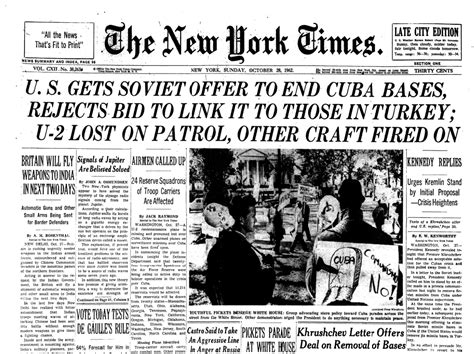
Mark Cuban proposes a swift two-pronged approach to revitalize the American economy, focusing on streamlining healthcare costs and incentivizing technological innovation as the keys to unlocking prosperity within a single day.
Billionaire entrepreneur Mark Cuban believes America’s economic woes can be significantly addressed through two immediate actions: reducing healthcare costs and fostering technological advancements. In a recent interview, Cuban outlined his vision for an economic overhaul, emphasizing the urgent need to tackle rising healthcare expenses and stimulate innovation to enhance the nation’s competitive edge. This strategy, he argues, could set the stage for long-term economic growth and stability, executed within a remarkably short timeframe.
Addressing Healthcare Costs: A Crucial First Step
Cuban identifies the exorbitant cost of healthcare as a major impediment to economic progress. He contends that high healthcare costs burden individuals, families, and businesses, diverting resources away from productive investments. To alleviate this strain, Cuban advocates for transparent pricing in the pharmaceutical industry and more efficient healthcare delivery systems.
“Healthcare is a huge problem,” Cuban stated. “It’s crushing individuals, it’s crushing companies, and it’s making us less competitive.”
Cuban’s approach to healthcare reform centers on leveraging technology and market forces to drive down costs. He suggests implementing standardized pricing for common medical procedures and prescription drugs, enabling consumers to make informed decisions and encouraging competition among providers. Cuban also supports the expansion of telemedicine and digital health solutions to improve access to care and reduce administrative overhead.
One specific area of focus for Cuban is the pharmaceutical industry. He has been a vocal critic of high drug prices, advocating for policies that promote transparency and competition. Cuban’s online pharmacy, Cost Plus Drug Company, aims to disrupt the traditional pharmaceutical supply chain by offering generic drugs at significantly lower prices. This initiative exemplifies his commitment to addressing healthcare affordability through innovative business models.
Cuban believes that reducing healthcare costs will have a cascading effect on the economy, freeing up capital for investments in education, infrastructure, and innovation. He argues that a healthier population is a more productive workforce, contributing to increased economic output and improved living standards.
Incentivizing Technological Innovation: Fueling Future Growth
The second pillar of Cuban’s economic revitalization plan is fostering technological innovation. He believes that America’s long-term prosperity depends on its ability to remain at the forefront of technological advancements. To stimulate innovation, Cuban proposes a range of policies, including increased funding for research and development, tax incentives for startups, and regulatory reforms to encourage entrepreneurship.
“We have to be the most innovative country in the world,” Cuban emphasized. “That means investing in research, supporting startups, and creating a regulatory environment that fosters innovation.”
Cuban highlights the importance of investing in emerging technologies such as artificial intelligence (AI), biotechnology, and renewable energy. He argues that these technologies have the potential to transform industries, create new jobs, and address some of the world’s most pressing challenges. Cuban also underscores the need to support education and training programs that equip workers with the skills needed to thrive in the digital economy.
Cuban’s vision for technological innovation extends beyond traditional research and development. He advocates for creating a more entrepreneurial ecosystem, where startups and small businesses can access capital, talent, and mentorship. Cuban believes that a vibrant startup community is essential for driving innovation and creating new economic opportunities.
To support entrepreneurship, Cuban proposes simplifying regulations, reducing bureaucratic hurdles, and providing tax incentives for startups. He also suggests expanding access to venture capital and other forms of financing for early-stage companies. Cuban argues that these policies will encourage more individuals to take risks, start businesses, and pursue innovative ideas.
The Feasibility of a One-Day Overhaul
While the idea of overhauling America’s economy in a single day may seem ambitious, Cuban argues that the proposed actions can be initiated quickly and have an immediate impact. He believes that by focusing on targeted reforms in healthcare and innovation, policymakers can create a positive feedback loop that generates momentum for further economic growth.
Cuban acknowledges that implementing these changes will require political will and collaboration across different sectors. However, he remains optimistic that a consensus can be reached on the need to address healthcare costs and foster innovation. Cuban points to the success of his online pharmacy as evidence that innovative solutions can disrupt traditional industries and deliver tangible benefits to consumers.
He also stresses the importance of public-private partnerships in driving economic development. Cuban believes that government, businesses, and educational institutions must work together to create a supportive ecosystem for innovation and entrepreneurship. He cites examples of successful public-private partnerships in other countries and argues that America can learn from these models.
The Broader Economic Context
Cuban’s proposals come at a time of significant economic challenges for the United States. The country is grappling with high inflation, rising interest rates, and concerns about a potential recession. While Cuban’s plan focuses on healthcare and innovation, he acknowledges that other factors, such as fiscal policy and international trade, also play a role in shaping the economic landscape.
Cuban’s focus on healthcare costs aligns with growing concerns about the affordability and accessibility of medical care. According to the Centers for Disease Control and Prevention (CDC), healthcare spending in the United States reached $4.3 trillion in 2021, accounting for nearly 20% of the nation’s GDP. This figure is significantly higher than in other developed countries, raising questions about the efficiency and effectiveness of the American healthcare system.
Similarly, Cuban’s emphasis on technological innovation reflects the increasing importance of technology in driving economic growth. A report by the McKinsey Global Institute estimates that AI could add $13 trillion to the global economy by 2030, highlighting the transformative potential of this technology. However, realizing the benefits of AI and other emerging technologies will require significant investments in research, education, and infrastructure.
Potential Challenges and Criticisms
While Cuban’s proposals have generated considerable interest, they have also faced criticism from some quarters. Some experts question the feasibility of implementing such sweeping reforms in a single day, arguing that it would take time to negotiate and implement the necessary policy changes. Others raise concerns about the potential unintended consequences of Cuban’s proposals, such as the impact on pharmaceutical companies and healthcare providers.
Critics of Cuban’s healthcare plan argue that reducing drug prices could stifle innovation in the pharmaceutical industry, leading to fewer new drugs being developed. They also contend that standardized pricing for medical procedures could limit patient choice and discourage providers from offering specialized services.
Similarly, critics of Cuban’s innovation plan argue that tax incentives for startups could disproportionately benefit wealthy investors and fail to create meaningful economic opportunities. They also raise concerns about the potential for regulatory reforms to weaken consumer protections and environmental safeguards.
Despite these criticisms, Cuban remains confident that his proposals offer a viable path to economic revitalization. He argues that the benefits of reducing healthcare costs and fostering innovation outweigh the potential risks. Cuban also emphasizes the importance of ongoing monitoring and evaluation to ensure that the policies are achieving their intended goals.
The Path Forward
Cuban’s two-step plan represents a bold vision for transforming the American economy. While the idea of a one-day overhaul may be aspirational, the underlying principles of reducing healthcare costs and fostering innovation are widely recognized as critical to long-term economic success. Whether policymakers embrace Cuban’s specific proposals or pursue alternative strategies, the need to address these challenges is clear.
The path forward will require a collaborative effort involving government, businesses, and individuals. It will also require a willingness to challenge conventional wisdom and embrace innovative solutions. By focusing on targeted reforms and investing in the future, America can create a more prosperous and equitable economy for all.
Conclusion
Mark Cuban’s two-step plan to overhaul America in a day highlights the urgent need to address rising healthcare costs and foster technological advancements. By reducing the burden of healthcare expenses and incentivizing innovation, Cuban believes that the United States can unlock its economic potential and remain competitive in the global economy. While the feasibility of a one-day overhaul may be debated, the underlying principles of Cuban’s plan offer a valuable framework for policymakers to consider as they seek to address the nation’s economic challenges. The focus on transparency, competition, and investment in future technologies underscores a potential pathway to sustainable growth and prosperity. The key to success lies in collaboration, innovation, and a commitment to creating a more equitable and efficient economic system.
Frequently Asked Questions (FAQ)
1. What are the two main steps in Mark Cuban’s plan to overhaul America’s economy?
Mark Cuban’s plan centers around two core strategies: reducing healthcare costs and incentivizing technological innovation. He believes these two actions, if implemented swiftly, can significantly boost the American economy.
2. How does Cuban propose to reduce healthcare costs?
Cuban suggests implementing transparent pricing for pharmaceutical drugs and medical procedures, encouraging competition among healthcare providers, and expanding telemedicine and digital health solutions to improve access and reduce administrative costs. His own company, Cost Plus Drug Company, is an example of his efforts to lower drug prices.
3. What specific policies does Cuban advocate for to foster technological innovation?
Cuban proposes increased funding for research and development, tax incentives for startups, and regulatory reforms to encourage entrepreneurship. He emphasizes investment in emerging technologies like AI, biotechnology, and renewable energy, along with education and training programs to prepare workers for the digital economy.
4. Is it realistic to expect an economic overhaul to happen in just one day?
While the “one day” timeframe is likely symbolic, Cuban argues that initiating these reforms can have an immediate impact and create momentum for further economic growth. He acknowledges that full implementation will take time and require political will, but he believes that targeted reforms can quickly yield positive results.
5. What are some potential criticisms of Cuban’s economic plan?
Critics argue that reducing drug prices could stifle pharmaceutical innovation and that standardized pricing for medical procedures could limit patient choice. Others suggest that tax incentives for startups might disproportionately benefit wealthy investors and that regulatory reforms could weaken consumer protections and environmental safeguards. However, Cuban maintains that the benefits of his plan outweigh the potential risks.









